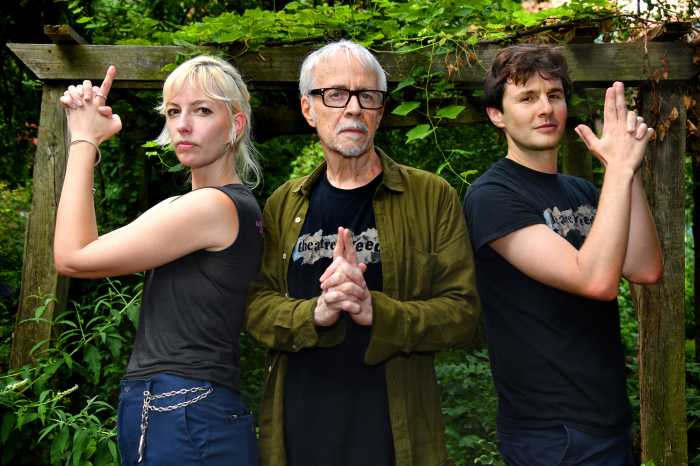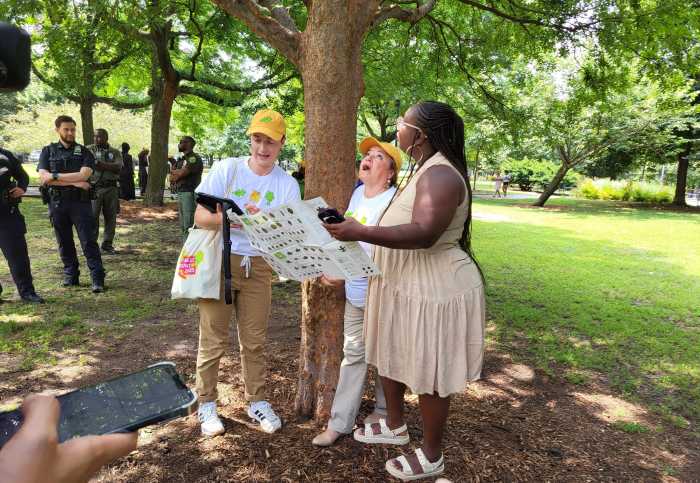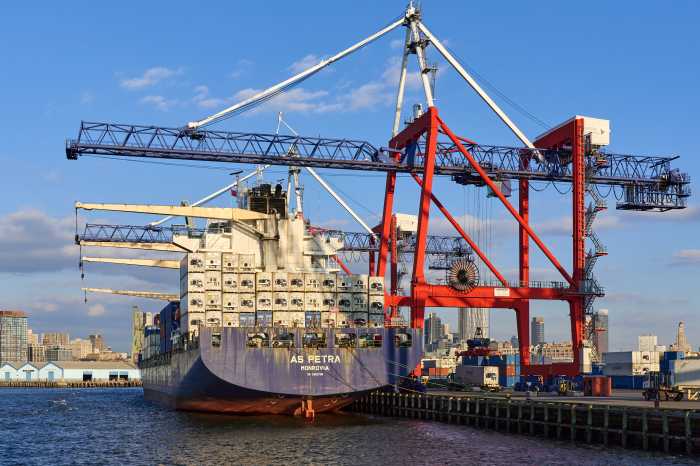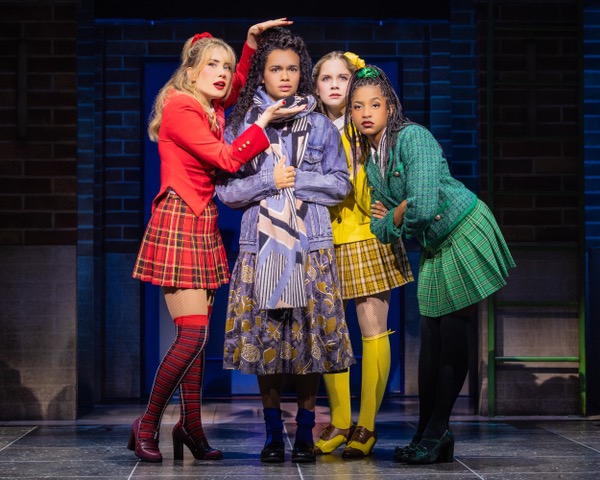By Albert Amateau
State Supreme Court Justice Jane S. Solomon on Monday dismissed the lawsuit filed last year challenging the Department of Parks’ reconstruction of the pavilion at the north end of Union Square Park.
The dismissal means that the reconstruction of the pavilion, which is currently underway, can proceed and include the infrastructure for a seasonal restaurant.
Members of the Union Square Community Co-alition and NYC Park Advocates had sued to block the entire reconstruction of the north end of the park and the plaza north of the park, claiming that the city failed to comply with state environmental laws and city land-use procedure, and that preparing the pavilion for private use as a seasonal restaurant was an illegal alienation of public land.
Judge Solomon ruled on March 30 that all aspects of the rehabilitation project were in a category of actions that do not require any further environmental review than was already conducted by the Parks Department.
The judge ruled also that the alienation claim was “not ripe” because a final determination of the use of the pavilion is subject to further administrative action — namely a request for proposals, or R.F.P., from private concessionaires to operate a restaurant. At the same time, the judge found that the zoning and land-use procedure issues were also “not ripe” because they rest on allegations that the operation of a restaurant would relinquish control of the park.
Nevertheless, she held that the plaintiffs would have the right to file a lawsuit later in the process.
Solomon said that operating an eating establishment in the park is consistent with public purpose, noting that the area around the pavilion, now being converted into an expanded playground, was previously used as the outdoor restaurant Luna Park Cafe. But she also said that not all restaurants in city parks would necessarily be permissible.
Parks Commissioner Adrian Benepe hailed the verdict, saying, “We are gratified at the court’s decision to allow us to continue the restoration of Union Square Park’s historic pavilion with public space and a seasonal concession. The pavilion is part of the Union Square Park’s north-end renovation, which includes a playground three times larger than previously, a restored plaza and many more trees.
“We felt we had a good case,” Benepe added. “As long as there have been parks in New York City, there have been places to eat in them.”
However, Geoffrey Croft, a founder of NYC Parks Advocates, said the group would continue the legal battle.
“I’m disappointed that the mayor and Union Square Partnership will now force a small nonprofit to spend even more time and money addressing the needs of the community, especially its children. They should be ashamed of themselves,” Croft said, referring to the legal expense. “We will continue to fight for the community’s needs and, when the time is right, we’ll seek relief from the courts. Unfortunately they have offered no reasonable alternatives.
“We’re pleased the court reaffirmed our position that not all restaurants in all parks are universally acceptable,” Croft said.
Former Assemblymember Sylvia Friedman, chairperson of the Union Square Community Coalition, also vowed to continue the struggle.
“We are disappointed in the judge’s decision, but we look forward to continuing our fight to protect the park and pavilion for our children and our community,” Friedman said.
But Susan Kramer, a former U.S.C.C. member and a supporter of the park project, praised Solomon’s decision.
“Finally, someone said ‘Nay’ to the naysayers of U.S.C.C.,” she said. “Those of us who have supported the renovation plan from the beginning can finally feel proud and vindicated.”
The 3.6-acre Union Square Park was opened in 1839 when fashionable houses at the union of major north-south routes were built around the site. Later, Frederick Law Olmsted and Calvert Vaux, designers of Central Park and Prospect Park, redesigned Union Square Park. The first Labor Day march in the U.S. began in Union Square in 1882, and the park is listed on the National Register of Historic Places.
A Women’s and Children’s Pavilion was built in the north end of the park at the end of the 19th century, and was reconstructed in the 1920s and 1930s.
The Union Square Partnership, which runs the Union Square business improvement district under city supervision, sponsored the current redesign, and the reconstruction work by the city Parks Department is now about half completed.





































